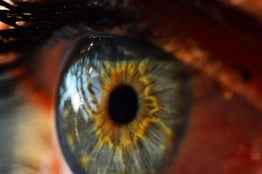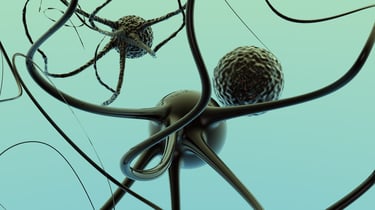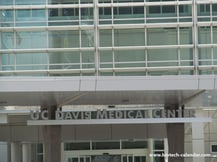 The University of California, Davis Medical Center is one of the best in the country. It is comprised of the UC Davis Cancer Center, a medical school, the MIND (Medical Investigation of Neurodevelopmental Disorders) Institute, the Eye Center, and other important research facilities. Recently, the medical center received a generous donation to aid their research.
The University of California, Davis Medical Center is one of the best in the country. It is comprised of the UC Davis Cancer Center, a medical school, the MIND (Medical Investigation of Neurodevelopmental Disorders) Institute, the Eye Center, and other important research facilities. Recently, the medical center received a generous donation to aid their research.
Tags: CA, University of California Davis Medical Center, Optics, Southwest, UCDMC, Sacramento, new funding, UC Davis, 2016, BioResearch Product Faire, Ernest E. Tschannen, eye center, West Coast
Tags: CA, University of California Davis Medical Center, Southwest, Alzheimer's Research, UCDMC, BioResearch Product Faire Event, Sacramento, 2016
 According to the National Institute of Mental Health, schizophrenia is a chronic, severe, and disabling brain disorder that affects about 1% of Americans. Schizophrenia often causes paranoia, hearing voices other people don't hear, and believing other people are reading their minds, controlling their thoughts, or plotting to harm them.
According to the National Institute of Mental Health, schizophrenia is a chronic, severe, and disabling brain disorder that affects about 1% of Americans. Schizophrenia often causes paranoia, hearing voices other people don't hear, and believing other people are reading their minds, controlling their thoughts, or plotting to harm them.
Read More
Tags: CA, neurodevelopmental disorders, California, 2015, UCDMC, BioResearch Product Faire Event, Neurology, Sacramento, Davis, NIH funding, new Building, research grants, NIH grants, UC Davis, best lab supply tradeshows, best science tradeshows
 Two prominent researchers at UC Davis are under a microscope for their work in stem-cell biotechnology. The pair from University of California, Davis was awarded close to $4 million in funding to improve biotechnology intended for physicians studying stem cell treatments.
Two prominent researchers at UC Davis are under a microscope for their work in stem-cell biotechnology. The pair from University of California, Davis was awarded close to $4 million in funding to improve biotechnology intended for physicians studying stem cell treatments.
The two grant awards, of over $1.8 million each, were awarded to Laura Marcu and Kent Leach by the California Institute for Regenerative Medicine (CIRM) to continue developing technology that is used in stem cell treatments for vascular disease, bone and cartilage repair.
Read More
Tags: CA, Stem cell research, California, 2015, UCDMC, BioResearch Product Faire Event, Biotechnology, Sacramento, Davis, UC Davis - Medical Center, UCD
The American Society for Microbiology released a study that showed some interesting results about whether or not people are actually washing their hands. Here are some results of the findings.
Read MoreTags: CA, Microbiology, California, 2015, Chemicals, UCDMC, BioResearch Product Faire Event
Sugar-sweetened soda consumption might promote disease independently from its role in obesity, according to UC San Francisco researchers who found in a new study that drinking sugary drinks was associated with cell aging.
Read MoreTags: California, 2015, San Diego, UCDMC, San Francisco, UCSD, UC San Diego, UCSF, Sacramento, UC San Francisco, UC Davis - Medical Center, Northern California BioResearch, San Francisco at Mission Bay, San Francisco Bay Area
Researchers at UC Davis and other institutions have found that diets rich in whole walnuts or walnut oil, slowed prostate cancer growth in mice. In addition, both walnuts and walnut oil reduced cholesterol and increased insulin sensitivity (when you have high insulin sensitivity, you are able to eat carbohydrates without such a large rise in insulin. When insulin is kept low enough, fatty acids can still be released). The walnut diet also reduced levels of the hormone IGF-1, which had been previously implicated in both prostate and breast cancer. The study was published online in the Journal of Medicinal Food.
Read MoreTags: Biotechnology Calendar, California, 2015, UCDMC, BioResearch Product Faire Event, Sacramento
Tags: California, NIH funded Research Projects, 2015, UCDMC, BioResearch Product Faire Event, Northern California BioResearch, UCD
There are many times when putting tarantula toxin into human cells seems like a very bad idea. At the University of California, Davis, however, it is a breakthrough idea that allows for closer examination of the electrical activity in cells, especially neurons. This opens up the field of brain study and also lends insights into conditions like muscle defects, cardiac arrhythmias, and epilepsy.
Read MoreTags: CA, University of California Davis, 2015, UCDMC
This prestigious designation makes the MIND Institute one of only fifteen Intellectual and Developmental Disabilities Research Centers in the country. Transition into this program is made possible by a five-year $6.5 million NIH grant and gives the institute critical new resources that will accelerate its progress in neurodevelopment research.
Tags: University of California Davis Medical Center, Bioinformatics, neurodevelopmental disorders, assays, molecular biology imaging, biological analysis, immunoassays, environmental contaminants, Autism, UCDMC, Funding, Research, NIH, UC Davis, UCD, grant, drug evaluation, developmental disabilities


